Planet Organic’s CEO wants to expand the retailer to all corners of the UK. But high-profile exits and supply chain woes suggest it’s not all smooth sailing
George Dymond has a confession to make. Until recently, the Planet Organic CEO had never shopped at the store he now leads. He didn’t even know the retailer existed until about three years ago.
In Dymond’s defence, he’d spent most of the 2010s working for Australian supermarket Coles. At that point, Planet Organic was just a small, London-based chain with a few stores. However, when Dymond learnt of the organic specialist on his return to the UK in 2019, he was impressed. “I thought ‘what a wonderful brand with so much potential and yet it’s only got a few stores in London,” he reminisces as we take refuge from the capital’s gloomy weather inside Planet Organic’s quiet Tottenham Court Road store.
Ambling across the newly revamped flagship branch holding a coffee, Dymond admits it was the feeling that Planet Organic was only “scratching the surface of its potential” that convinced him to take the top job following a two-year stint at Holland & Barrett. It wasn’t a shotgun decision. He was in talks with the organic grocery chain for six months before taking the baton from CEO of 13 years Peter Marsh in November 2021, when Dymond was finally entrusted with taking Planet’s “26-year-old startup” vibes to the next level, he says.
At the core of that plan was an ambitious expansion target to grow it from an 11-store chain in London to a 50-store UK-wide estate by 2025.
The timing was not ideal. It had just acquired four As Nature Intended stores (in March 2020) when “covid absolutely smashed us,” he says. London stores on Torrington Place and in Wandsworth were forced to close, contributing to widening losses from £2.5m in 2020 to £3.4m in 2021. Revenues tumbled almost 8% to £37.6m in the 52 weeks to 28 August 2021.
Name: George Dymond
Age: 47
Family: Married with four children (two born in Australia, two in the UK)
Potted CV: Best part of a decade at Carphone Warehouse where I ended up as trading director. Then to Australia where I was part of the team that helped turn around the fortunes of Coles supermarkets. Headed back to the UK where I was international MD and trading director of Holland & Barrett before joining Planet Organic
The best business advice I’ve ever been given: It’s always all about the people and the team. Get that right as early as possible
How do you relax outside work? Spending time and travelling with my family. Pretending I can ski, play tennis and golf. More recently I can be found gardening
What’s the last great album you listened to? I’m very mixed up musically. Blue Lines (Massive Attack) and Blood On The Tracks (Bob Dylan) are always top of the list but a bit more up to date is Go Farther In Lightness by Gang Of Youths
Choose to have dinner with one person? Right now, Rishi Sunak
Dymond refers to the latest financials as “the Covid report”. “We had the reshaping phase, which is this [financial] year just finished” and includes the closing of stores, he says. “That was about trying to get the business on to a solid platform. From now, we grow.”
It is a refreshingly bullish attitude seldom found in grocery these days. Most other retail bosses talk of the rising inflationary pressures with caution. By contrast, Dymond insists “you just gotta roll with it”.
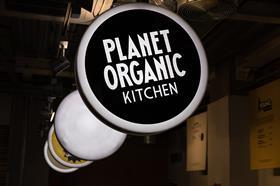
There is no dampening his enthusiasm. When it’s pointed out that his growth path is potentially endangered by the cost of living crisis and the shift away from premium retail, he reiterates the opportunity to double down on what he calls “the right store portfolio” – smaller stores (2,000 to 2,500 sq ft) in areas outside London, where it can become the preferred destination for wealthier suburban households.
This process kicked off last month with the opening of its first store outside London in Henley-on-Thames, the first of eight new store openings planned for the next 12 months. To support the store estate rollout, the business is aiming to secure a total of £25m from investors and is currently running a Seedrs crowdfunding round that has already exceeded the initial £6.25m target. In a video advertising the fundraising, an upbeat Dymond can be seen pitching investors the idea that “Planet Organic is much more than just a store”.
But with interest rates at record highs, negotiating debt is a daunting prospect for any business, let alone a lossmaking one. “We’ve had to make tough decisions,” Dymond says of the decision to borrow amid such financial instability. Yet he maintains the support of its lenders and shareholders leaves it in a “much stronger position” to face the future. “On the long term we would still need those £25m to get us to the 50 stores target. I’m in it for the long term, and so are our investors.”
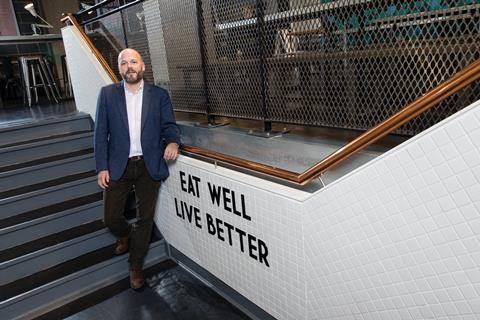
Restructure
With a new CEO has come a new senior team, with new execs across digital, HR, buying, supply, marketing and property. The appointment of Naked Wines’ growth director Joanne Gunn as customer director will complete the exec reshuffle, with finance director Eric Adatia the only survivor from the previous incarnation.
That’s meant some high-profile departures. One of Planet’s longest-standing buyers, Al Overton, recently left the business after nearly two decades. And previous operations head Caroline Ottoy, who was only appointed as a director in October 2021, resigned from that role six months later, indicating a certain friction among senior staff members amid the upheaval.
In yet another upheaval, the retailer lost one of its key supply partners when health food wholesaler Tree of Life fell into administration this August. The collapse left hundreds of suppliers almost £20m out of pocket, and saw Planet Organic’s buying & supplying teams scrambling to “find new homes for suppliers” overnight or risk major shelf gaps. “There had been rumours for a long time but we didn’t expect it to happen,” Dymond says. “It was very dramatic. Credit to the amazing team for being able to move things around.”
The Tree of Life collapse came just months after Planet Organic parted ways with one of its biggest wholesale partners, CLF, as part of plans to centralise its supply chain. Last month, Planet Organic opened its first distribution centre in Sunbury-on-Thames, Surrey, 13 miles south west of central London, to replace its “highly inefficient” previous manual stock distribution system, which saw individual stores receive deliveries from around 200 suppliers per week.
“There had been rumours for a long time but we didn’t expect it to happen”
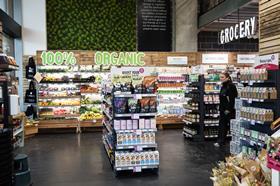
While the Tree of Life situation “weirdly enough” fast-forwarded the transition to a centralised model, it wasn’t smooth sailing. The aftermath of the collapse, coupled with industry-wide supply chain challenges, resulted in some stock gaps in recent months. “When you’re making big changes to the supply chain, it can be hard to fill the gaps. But automatic replenishment is coming on stream as we speak.”
The Tree of Life debacle has reminded Dymond how important it is to champion smaller brands. “At our heart we are amazing at being the springboard for smaller brands.” And that will “set us apart,” even in difficult circumstances, he adds, recalling the time online ethical grocer Farmdrop went bust before Christmas last year, leaving hundreds of customers scrambling to find festive food alternatives. “We tried our best to help that supply base, because otherwise where does it all go? It all just goes to the homogenised, commoditised, ‘everyone’s the same’ bag.
Still, promoting small suppliers while dealing with inflationary pressures is a balancing act. “We want to be firm but fair,” he says. “We’re not just raising prices and putting them straight through to the consumer. We’re being mindful in terms of where we move.”
A year on from his appointment, Dymond acknowledges the major changes inside and outside the business means it is not easy to get everyone behind his vision. Yet he is resolute that despite the high-profile departures, the existing team is buying into his plan. “Don’t underestimate how much the team loves the brand,” he says. “If we can create a plan that takes Planet to more customers, why wouldn’t people want to be on that?”







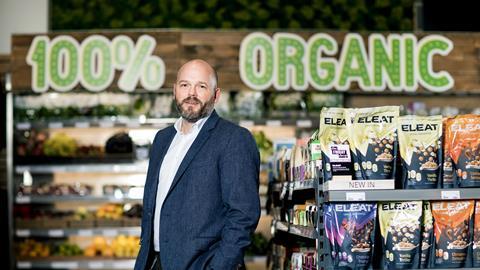
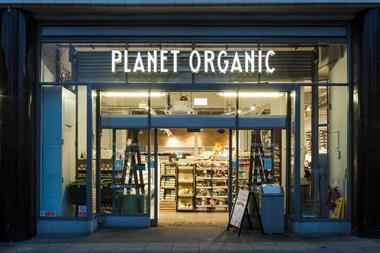
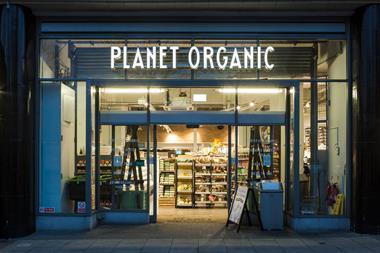
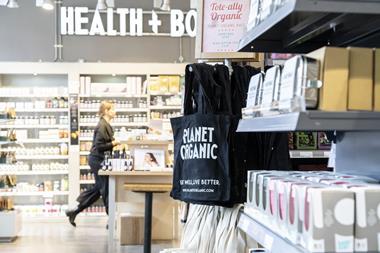
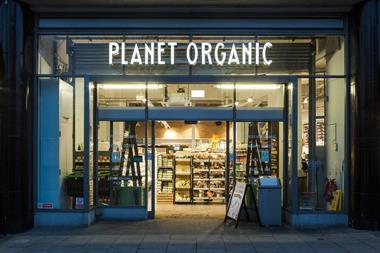

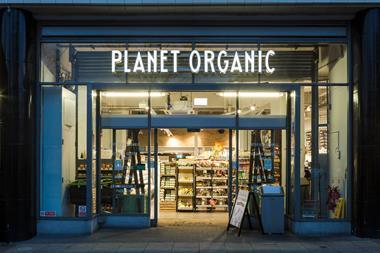
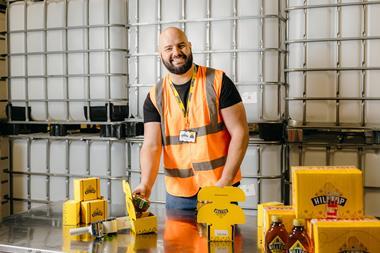
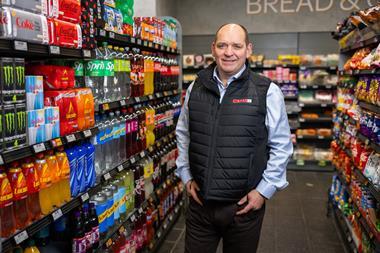
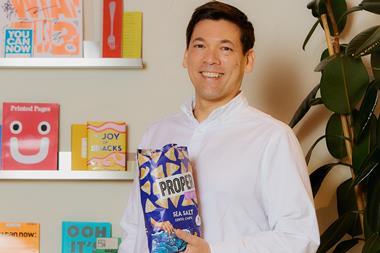
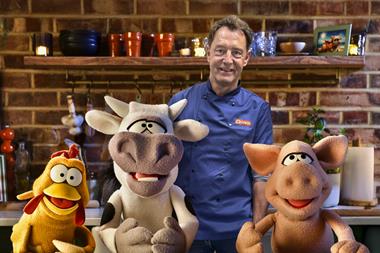
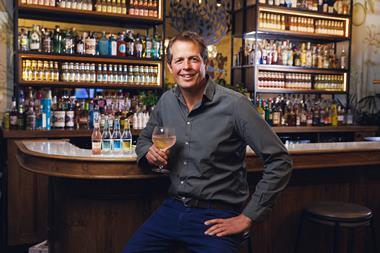
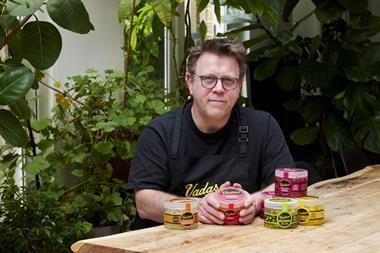
No comments yet